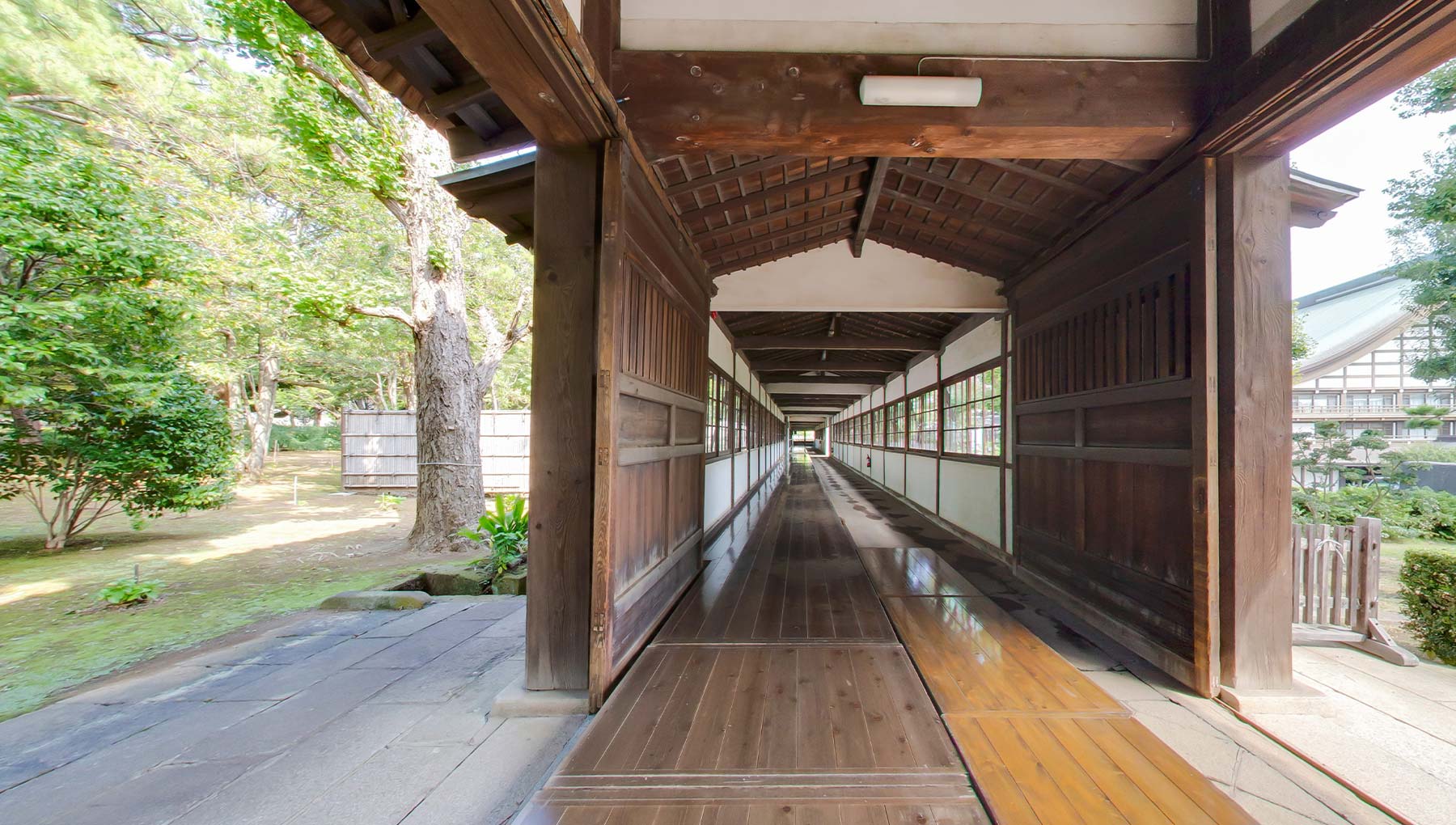Butsuden (Budda hall) has been registered as a Japanese cultual property
On March 18th 2005, the national cultural council suggested to the minister of Education, culture, sports, Science and technology to register 47 art and craft objects as national treasures or important cultural properties, 197 architectures as registered properties. At this council, 16 buildings of Sojiji have been registered as national cultural properties including Butsuden (Buddha hall).
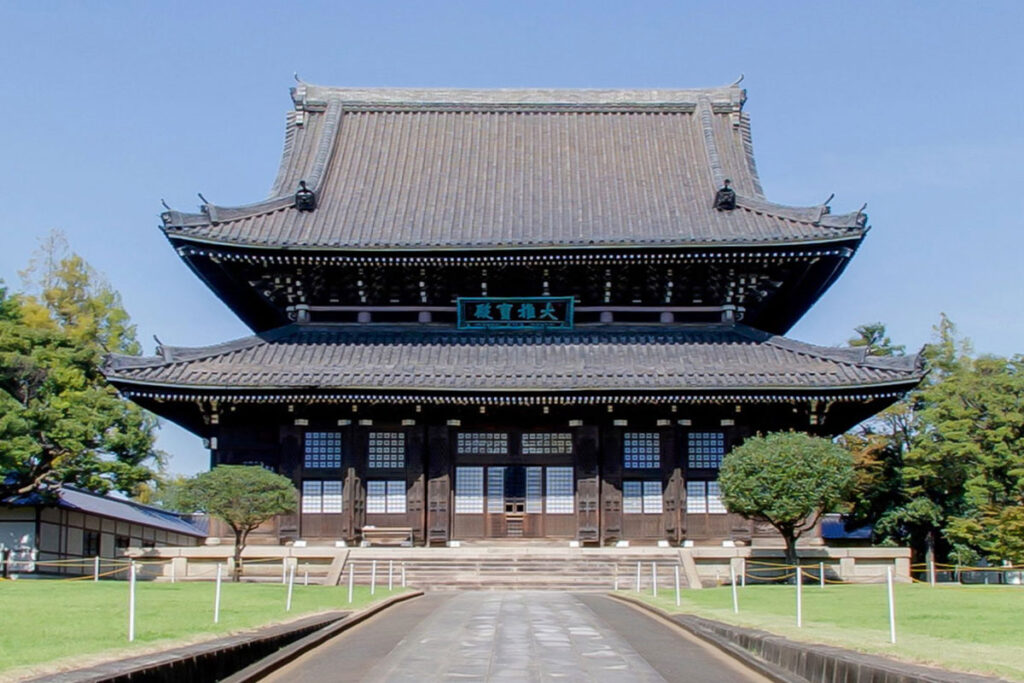
Butsuden -Buddha hall-
1915
Placed in the center of a traditional monastic structure facing to the south, double gabled style tile roofing. Creative designed decorative Buddhist construction. The master carpenter was Mr. Heizaemon Ito.
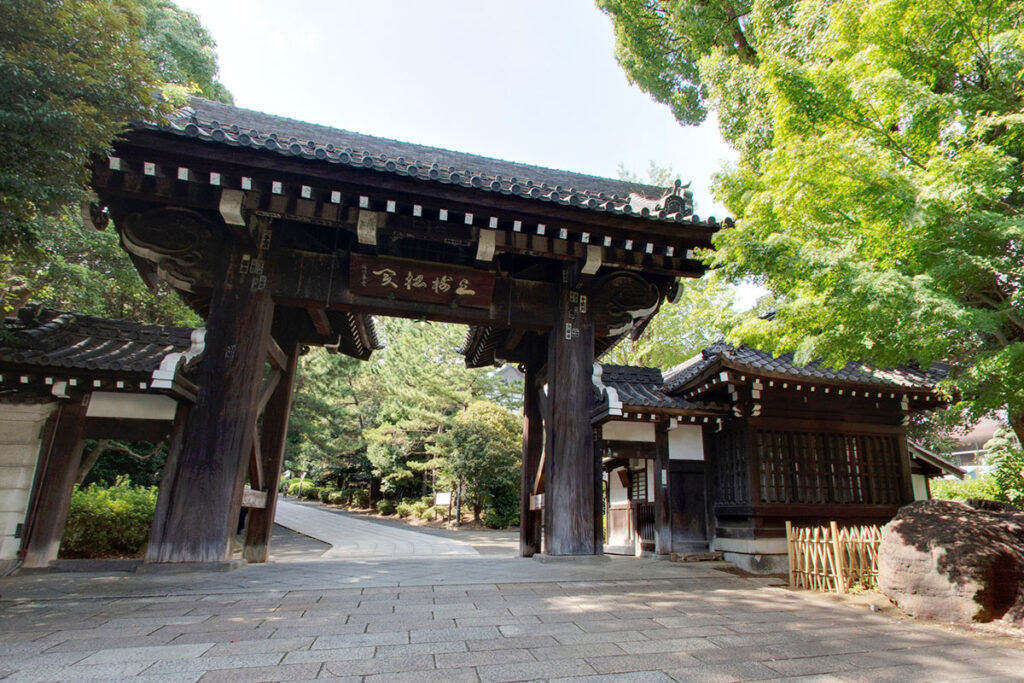
Sanshōkan
1920
Made of Japanese Zelkova, Kōrai style
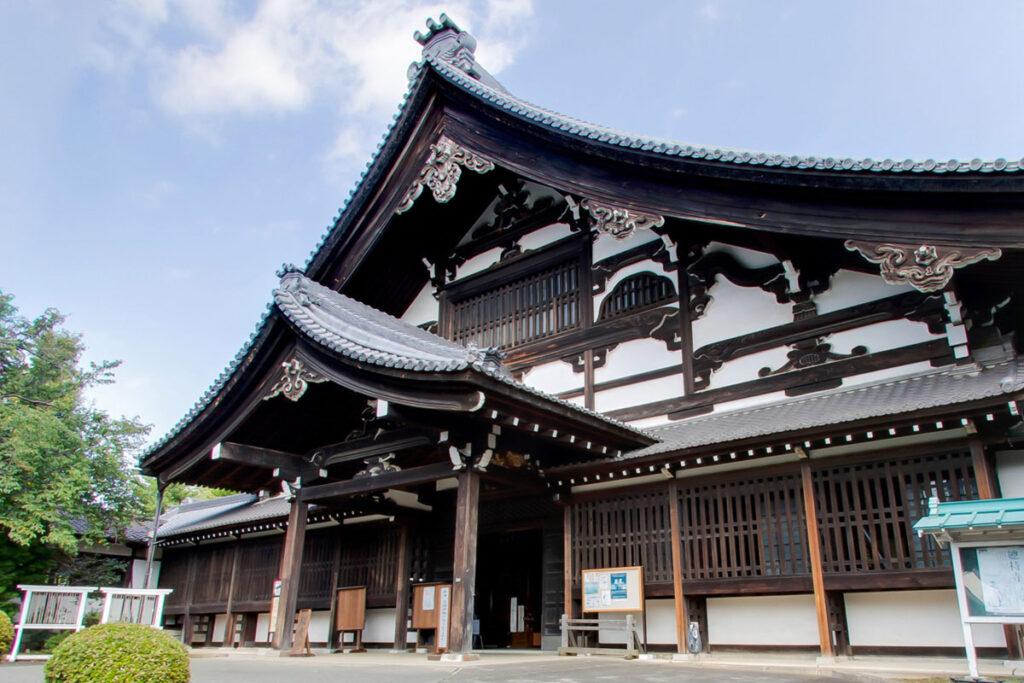
Kōshakudai
1920
Big two-storied building with gabled roof
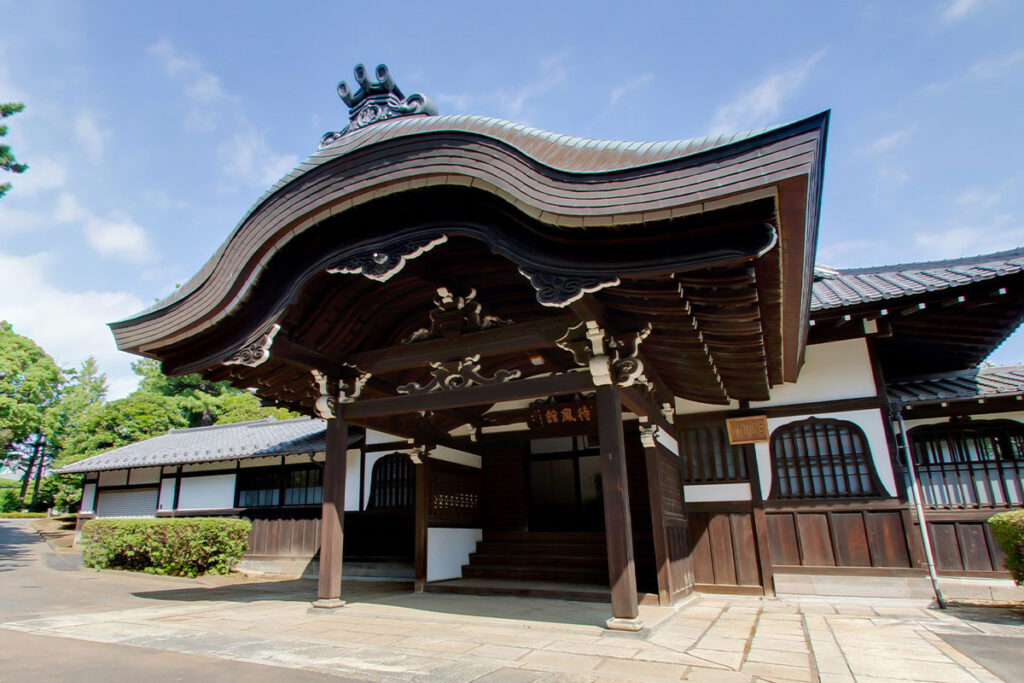
Taihōkan
Built in 1915, relocated in 1957
The main part was relocated from Tokugawa Family’s estate
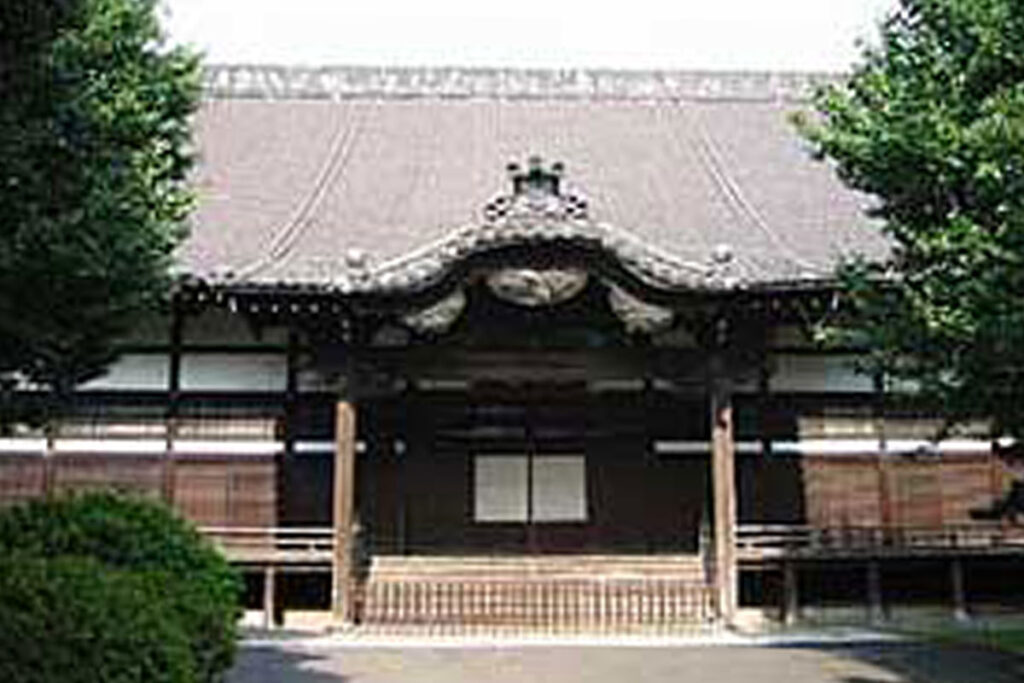
Shiuntai
1915
Gorgeous structure with a gabled roof, and cusped gable above the stairs
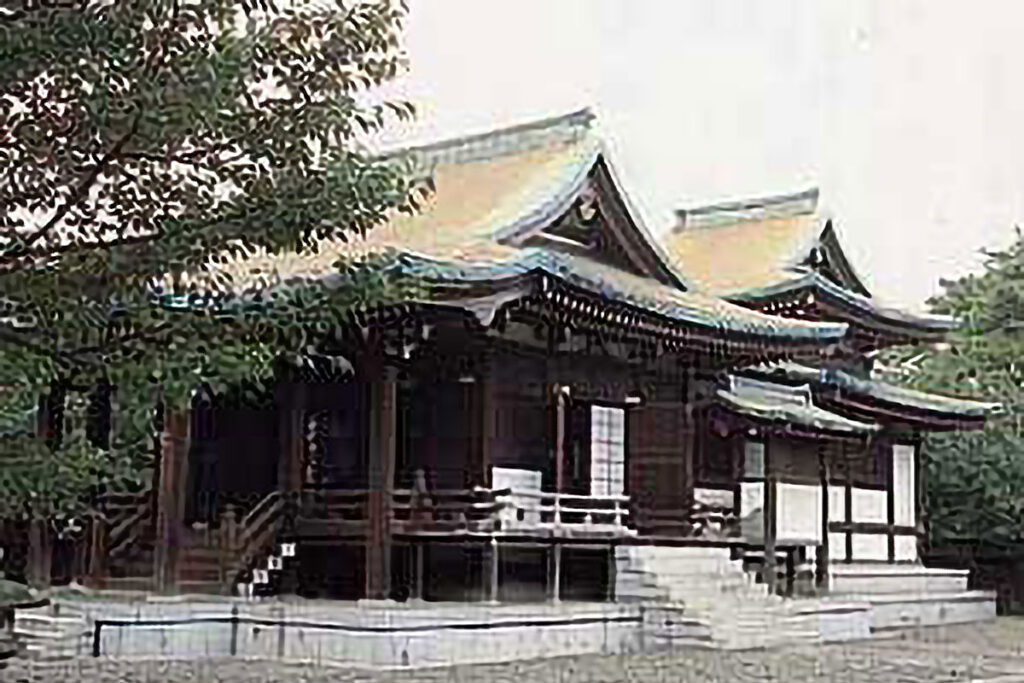
Goreiden
1937
Large two-storied structure, combination of characteristic Gongen style with gabled roof
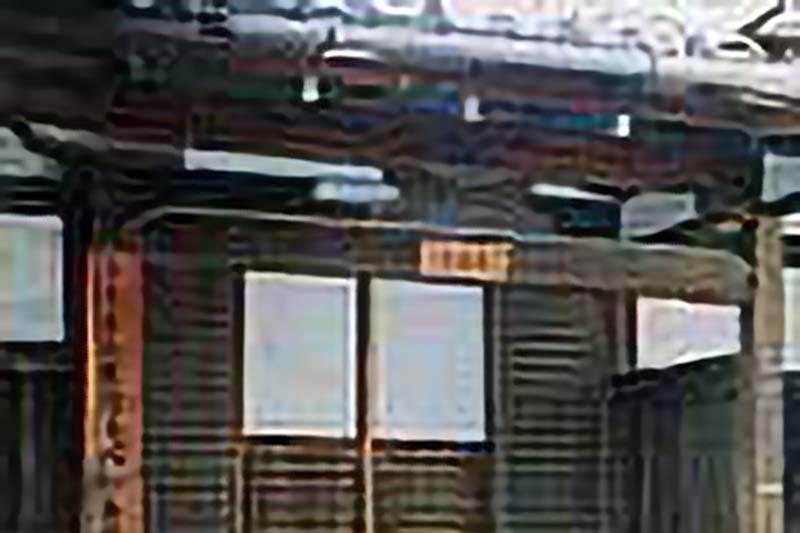
Koshōkutsu
Ansei era (1854-), relocated in 1911
Thoroughly made chamber
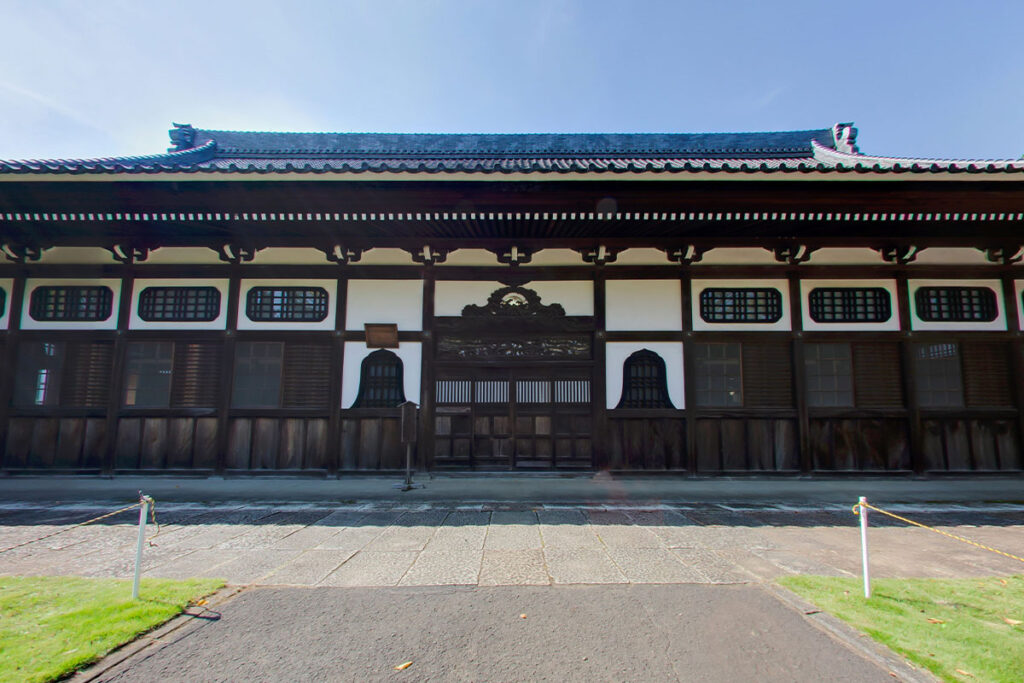
Hōkōdō
Ansei era (1854-), relocated in 1911
Large building of 30 meters dimension
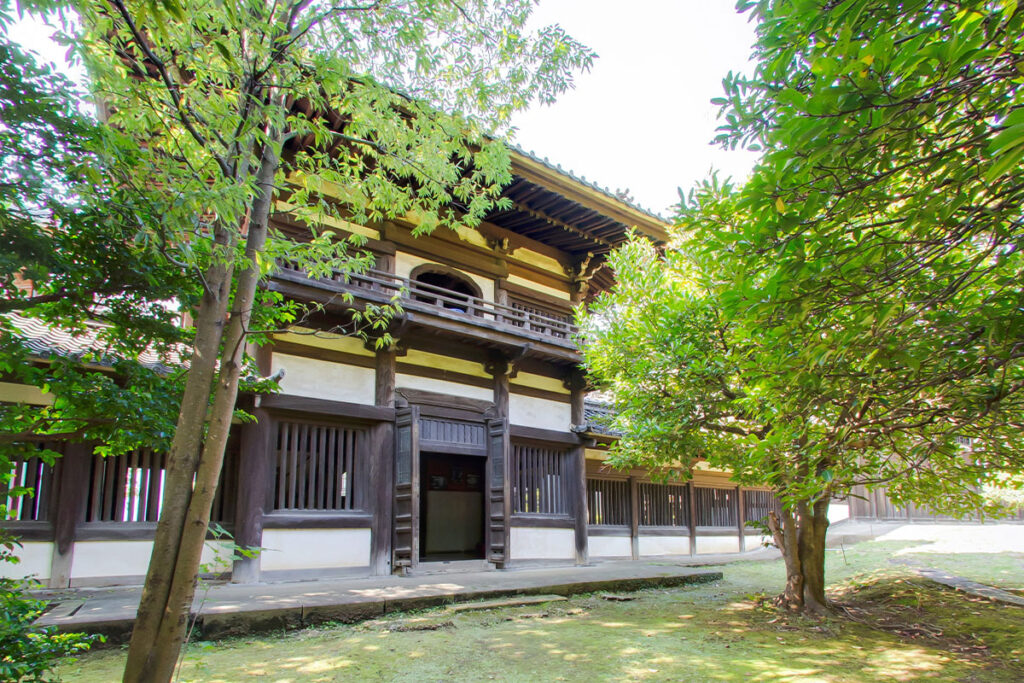
Shōkuro
1911
Old style tower structure
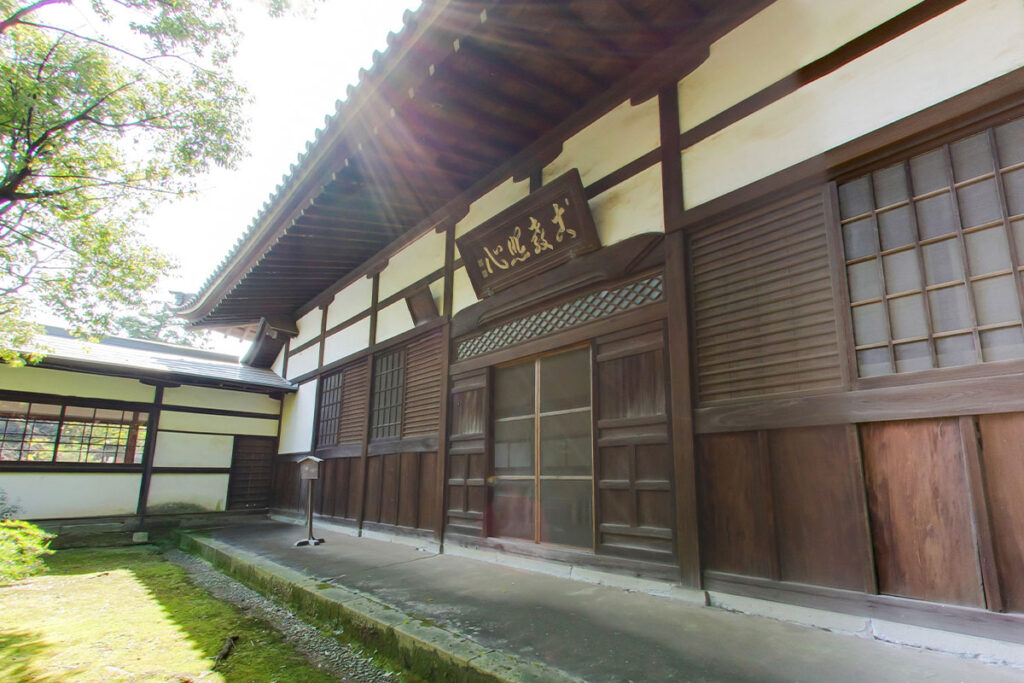
Shuryō
1911
Plain style of residential architecture
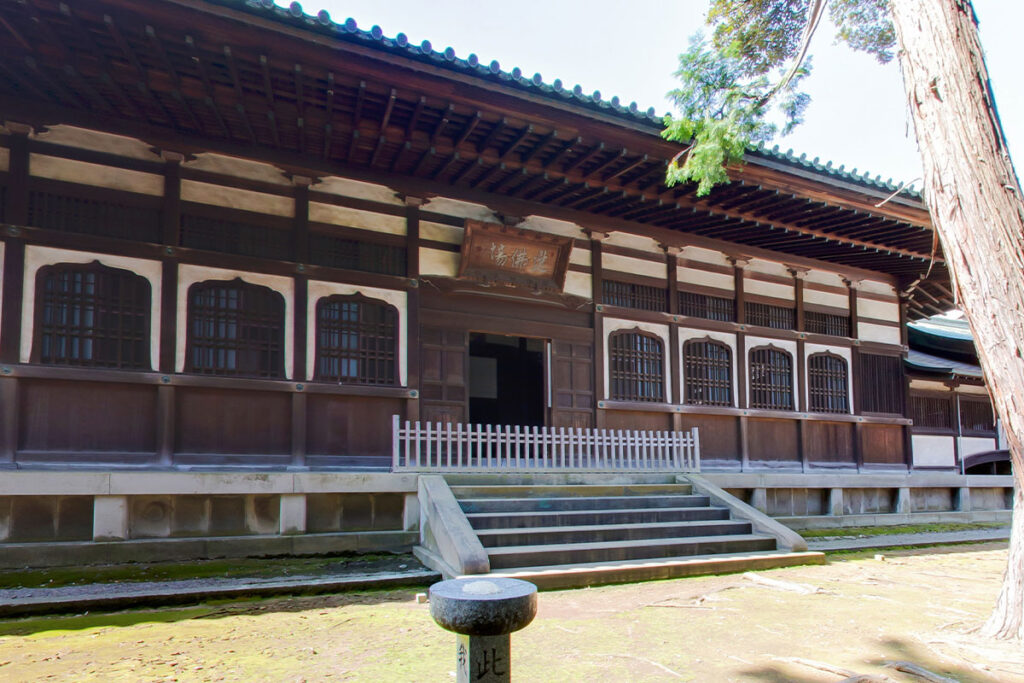
Daisōdō
1937
Platform with tatami inside for Zazen, characteristic bracket complex with 2 central columns.
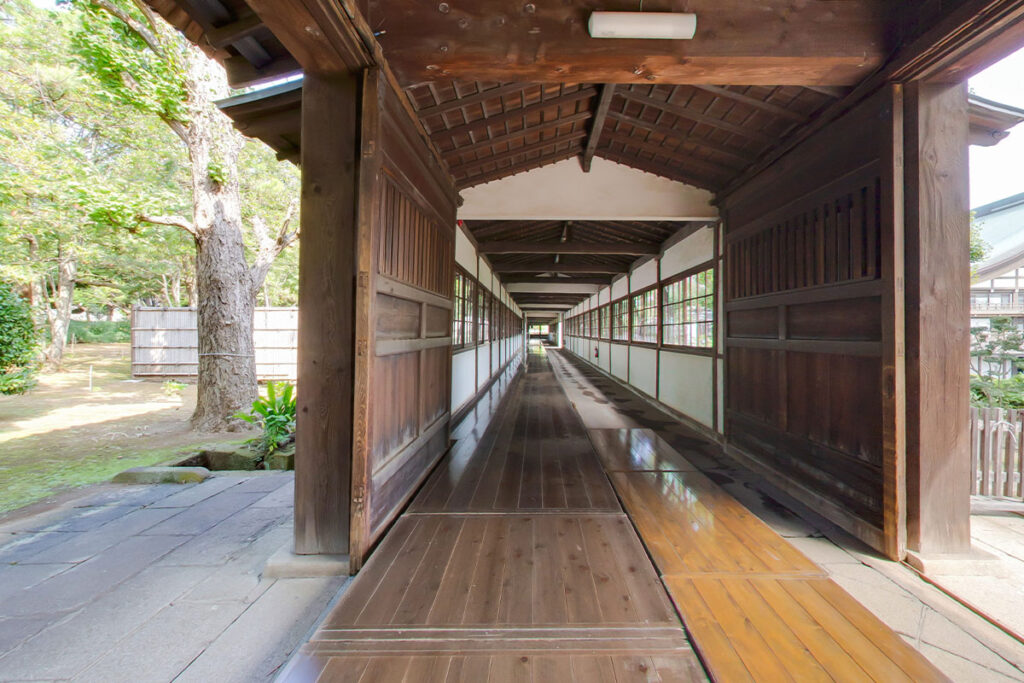
Hyakken Rōka (corridor) and gate
Around 1911
Long corridor with 3 gates
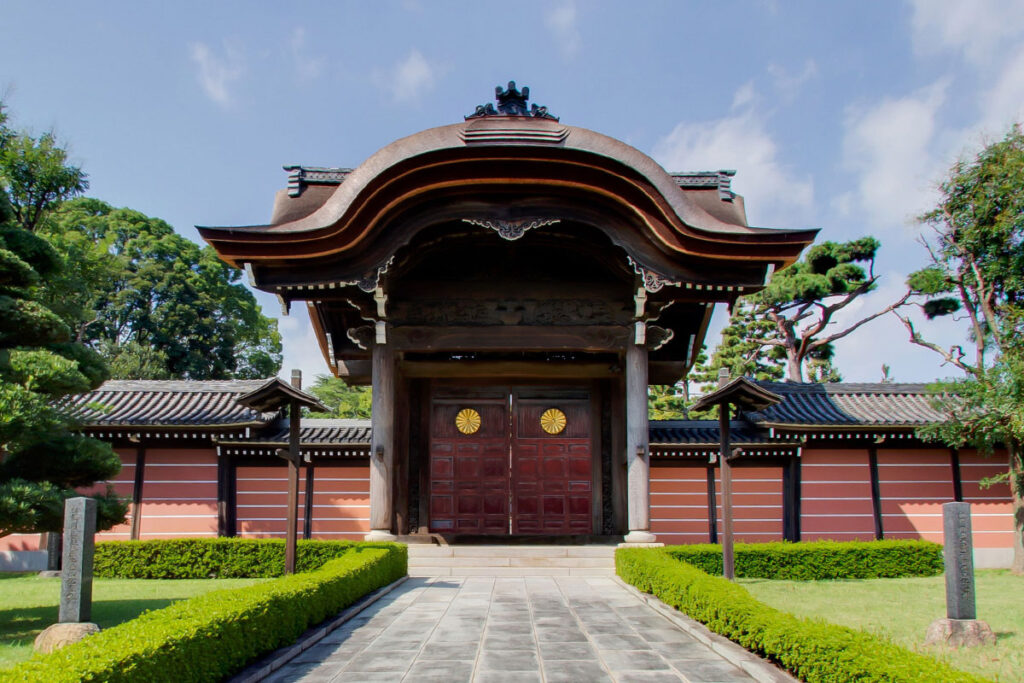
Mukaikara Mon
1925
Fine architecture with cusped gable at front and back
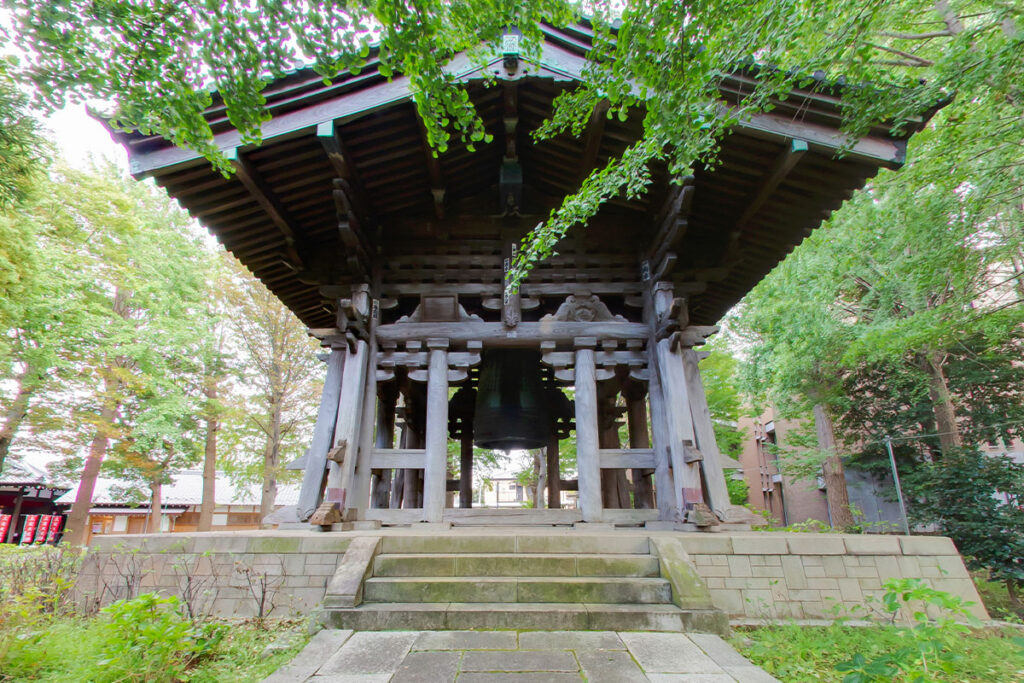
Shōrō
1911
Bell tower with outstanding sense of shape
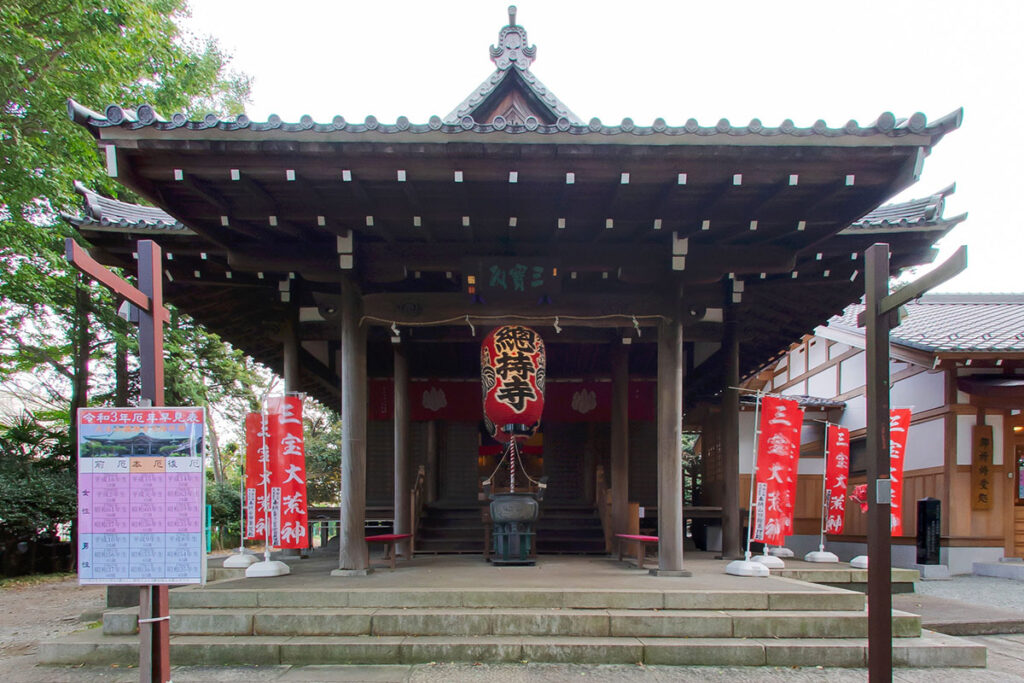
Sanbōden
1937
Shrine architecture with characteristic structure
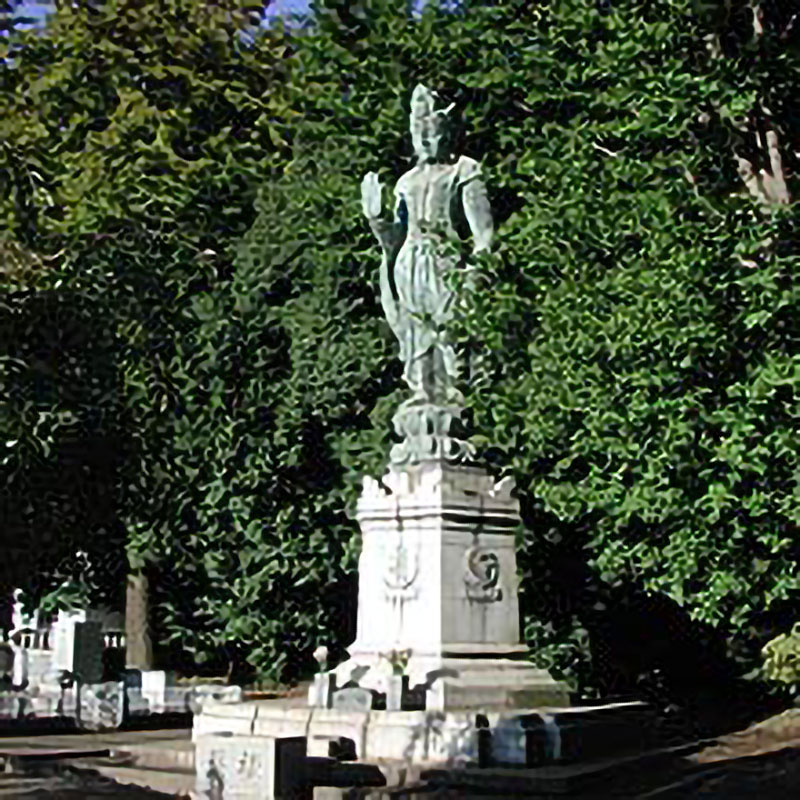
Pedestal of Hikari Kannon
1923
The pedestal is made of granite and designed by Mr. Chuta Ito
[reference]
A system of “national registered cultural property” has been established in 1996, to reflect the recognition of modern architectures’ historical importance. Buildings constructed more than 50 years ago and contributing to modernization are protected using moderate rules.
The law for the protection of cultural properties §56-2
The Minister of Education, culture, sports, Science and technology can register architectural material (except important cultural properties) that are considered necessary as record for preservation and are of practical use
